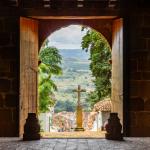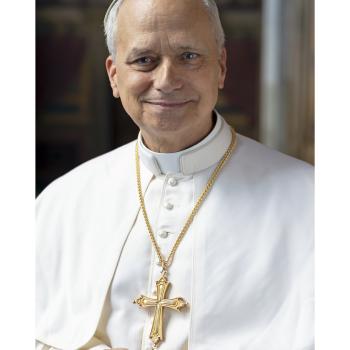To understand Galileo’s struggle with the Church, we must understand the conflict about religious truth after the Protestant Reformation. In the sixteenth century, the Church was still reeling from the Protestant Reformation. When Luther attached his 95 theses to the church door in Wittenberg, he lit fires of discontentment and challenges to traditional Christianity that rocked Europe. The Church responded with the Council of Trent.
Truth and the Canon of Scripture
In response to the actions of Martin Luther, the Council of Trent re-affirmed the Canon of Scriptures. Luther had thrown out the deuterocanonical books. He called them apocryphal because they were composed originally in Greek. He had no similar justification for disregarding the Letter of James from the New Testament, opening him up to the charge of disposing of books simply because they disagreed with his own preferred doctrines.
The Council of Trent re-affirmed the inerrancy of the Bible by declaring the Vulgata to be authentic. What exactly this inerrancy refers to would continue to be debated by theologians. However, the Inquisition tended to take a narrow view which would lead to problems for Galileo and his espousing of the Copernican theory of heliocentrism.
Galileo Galilei
In his letter to the Grand Duchess Christina of Tuscany (1615), Galileo reflected on the relationship between science and Scripture. He responded to concerns that Copernican astronomy had implications for Aristotelian physics, cosmology, and metaphysics. This threatened the traditional interpretation of the Bible and Catholic theology.
Galileo focused on the new astronomy and used certain passages of the Bible to argue for a Copernican understanding of the world in opposition to the accepted views of Ptolemy and Aristotle. This led to conflict with the Inquisition, as the Inquisitors followed Trent’s aversion to personal interpretation of the Bible. They feared that personal interpretation would lead to further division in the Church as marshalled in by Luther.

Subtlety in the Text and the Search for Truth
The Church leaders did not need to fear Galileo would lead a revolution in the faith in the way that Luther had with the publication of his theses. Galileo’s writings were subtler, as he tried to find a nuanced position reconciling theological and scientific truth. His “Letter to the Grand Duchess” defends two principles; namely, that there can be no contradiction between the truths of science and the truths of faith.
“God is the author of all truth: both the truth known through revelation and the truth known through reason alone” (William Carroll, “Galileo”, p. 157).
The main purpose of the Bible is not to teach natural philosophy but to lead all to salvation, so this quote seems to indicate he understood the meaning and purpose of the Bible better than many of the theologians of the day. Although Galileo agreed that truth cannot contradict truth, he thought that there was an epistemological difference between science and religion. Studying science and religion require different methodologies, but this does not mean that they are contradictory. He saw the Book of Nature requiring a different methodology of reading than the Book of Scripture.
One Truth, Many Truths
Galileo did not expect his research to yield a notable difference between religious truths and other truths in the Bible. Rather, he wanted to make an appeal to Church authorities to not condemn Copernican astronomy, since he thought he was about to prove the movement of the earth. Cardinal Bellarmine represented the posture of the Churchmen that astronomy could not be proved. Scholastic debates on the merits of various systems caught Galileo in the middle. The Dominicans and the Jesuits seem to have been feuding and currying favor at court, with Galileo suffering some of the consequences.
It is unfortunate that much of the debate around the Galileo controversy focuses on the unfortunate condemnation he suffered at the hands of Church authorities. It draws our attention away from the epochal change of the world being more open to the contributions of modern science. Pope John Paul II reflects amply on this topic in his seminal encyclical, Fides et Ratio. He helps us to see how the subjective and objective elements of truth can be reconciled.
Modern philosophy clearly has the great merit of focusing attention upon man… Yet the positive results achieved must not obscure the fact that reason, in its one-sided concern to investigate human subjectivity, seems to have forgotten that men and women are always called to direct their steps towards a truth which transcends them… Abandoning the investigation of being, modern philosophical research has concentrated instead upon human knowing. Rather than make use of the human capacity to know the truth, modern philosophy has preferred to accentuate the ways in which this capacity is limited and conditioned (Pope John Paul II, Fides et Ratio, 5).
What should have been a profitable conversation between Galileo and Church officials devolved into a power struggle. It embarrassed the Church. Hundreds of years later, Pope John Paul II addressed the controversy. He underlined the lessons to be made when speaking to the Pontifical Academy for Sciences. If God is the author of all truth, faith cannot contradict reason.
Subscribe to the newsletter to never miss an article.













